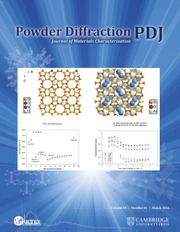Crossref Citations
This article has been cited by the following publications. This list is generated based on data provided by Crossref.
Corbi, Pedro P
Massabni, Antonio C
Moreira, Andréia G
Medrano, Francisco J
Jasiulionis, Miriam G
and
Costa-Neto, Claudio M
2005.
Synthesis, characterization, and biological activity of a new palladium(II) complex with deoxyalliin.
Canadian Journal of Chemistry,
Vol. 83,
Issue. 2,
p.
104.
Corbi, Pedro P.
and
Massabni, Antonio C.
2006.
1H–15N NMR studies of the complex bis(S-allyl-l-cysteinate)palladium(II).
Spectrochimica Acta Part A: Molecular and Biomolecular Spectroscopy,
Vol. 64,
Issue. 2,
p.
418.
Kapoor, Devesh U
Singh, Sudarshan
Sharma, Pratishtha
and
Prajapati, Bhupendra G
2023.
Amorphization of Low Soluble Drug with Amino Acids to Improve Its Therapeutic Efficacy: a State-of-Art-Review.
AAPS PharmSciTech,
Vol. 24,
Issue. 8,


